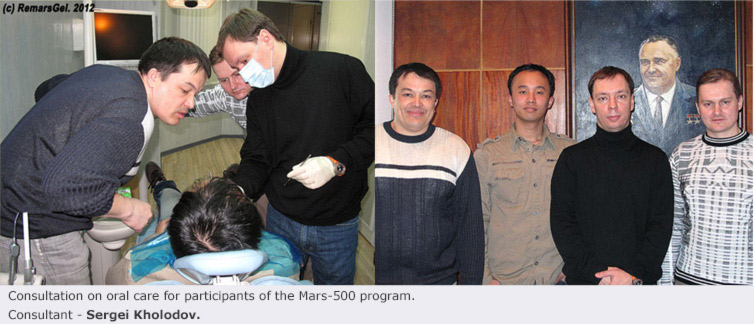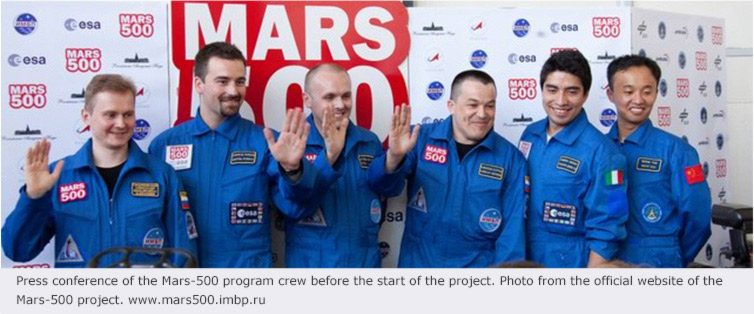Background

Some time ago the Institute of Medical and Biological Problems made a request to the Gekom company to assist in the formation of dental kits for astronauts. For astronauts a prolonged space flight is accompanied not only by gigantic physical overload, but also by a constant state of stress. Both have a negative impact on all of astronaut’s body and, of course, dental health. In space everything is not the same as on the ground - food, air, hygiene procedures. Under the influence of all these factors tooth enamel can be seriously affected, but it is impossible to send a dentist with all the dental equipment into orbit.
So the problem really was not an easy one: virtually a substitute for the dentist will have to fly to orbit to maintain health of astronauts’ teeth and protect people isolated from the outer world from possible trouble. Thus, the first task was to protect against the destruction of tooth enamel which would surely suffer from cosmic overloads. Then it was necessary to find an effective way to restore its structure. The last one was the ability to prevent tooth decay, and if it had already happened - to cure it early on.

As it turned out, a tool that could perform all these tasks already existed in the range of new products developed by the staff of Gekom. It was RemarsGel (formerly RemoGel), a mineral therapeutic and preventive complex for tooth enamel restoration. Scientists and developers led by the president of the company Sergei Kholodov included RemarsGel in the dental first aid kit for astronauts along with professional tools for independent dental care.
From a practical point of view, the use of this toothpaste is most optimal in conditions of both land experimental facility and a real space flight. Duration of one treatment is no more than 2-2.5 minutes, which corresponds to the conventional teeth cleaning.
The product proved so effective and versatile that gradually started gaining an audience first among the astronauts, and then in professionals circles and among patients.

Flights to Mars
«The Mars-500 » project is an international experiment conducted by the Institute of Biomedical Problems under the auspices of the Russian Space Agency and the Russian Academy of Sciences in 2010-2011. The project is a part of the manned mission to Mars which will take place in the foreseeable future (the nearest date stated is 2018).
During the experiment an international "crew" of six volunteers was in a closed complex for 520 days - about the time it will take to space travel to Mars and back. The main purpose of the project was to collect data on the health of the team and their performance while simulating the main features of the mission such as long duration, complete autonomy, communication delay and lack of consumable resources, and to determine whether such a flight is possible based on the capabilities of the human body. Together with the "crew" RemarsGel went to the experimental station to maintain dental health of the "astronauts».



International Space Station 2014

Oleg Artemiev is an onboard engineer of Manned Transport Vehicle “Soyuz TMA-12M” and MKS. He was born on the 28th of December, 1970 in Riga.
In 1998 Oleg graduated from Bauman State Technical University with the speciality of “Cryogenics”. In 2009 he graduated from The Russian Presidential Academy of Public Administration with speciality of “Human resource management”.
In May, 2003 Oleg was assigned to cosmonaut corps of Rocket and Space Corporation Energia and in July, 2005 he gained the qualification “Astronaut-Test engineer”. From May to July, 2009 Oleg participated in 105-day pilot scheme “Mars 500” which simulated mock mission to Mars.
In addition to the above, Oleg is fascinated by travel, underwater hunting, diving, alpine skiing and reading.
MKS is a manned orbital vehicle being used as multipurpose space probe. MKS is a modern international project involving 15 counties (Belgium, Brazil, Germany, Denmark, Spain, Italy, Canada, Netherlands, Norway, Russia, USA, France, Switzerland, Sweden, Japan). MKS administration is accomplished by Russian and American segments while European Space agency controls laboratory module.

